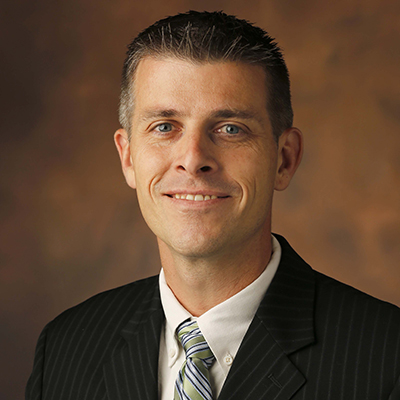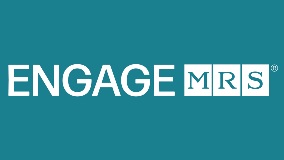Joshua Caldwell, Vanderbilt University
Candidate for Board of Directors
 Joshua D. Caldwell is currently the Director of the Interdisciplinary Materials Science Graduate Program and a Professor of Mechanical Engineering at Vanderbilt University, with joint appointments in Chemistry and Electrical and Computer Engineering. He received his Ph.D. in Physical Chemistry from the University of Florida in 2004. Following graduation, he accepted an American Society of Engineering Education (ASEE) Postdoctoral Fellowship to perform research at the Naval Research Laboratory, converting to permanent staff there in 2007. Prior to graduate school, he also served as a manufacturing engineer at ITT Night Vision in Roanoke, VA. During his tenure at NRL he was awarded a Long-Term Training (sabbatical) grant to work at the University of Manchester (UK) along side 2010 Nobel Laureate Kostya Novoselov in 2013-2014, won the 2014 Thomas Edison Best Patent Award, was a four-time winner of the NRL Alan Berman Best Pure Science Paper Award, and a three-time winner of the highly competitive NRL Nanoscience Institute (NSI) grants.
Joshua D. Caldwell is currently the Director of the Interdisciplinary Materials Science Graduate Program and a Professor of Mechanical Engineering at Vanderbilt University, with joint appointments in Chemistry and Electrical and Computer Engineering. He received his Ph.D. in Physical Chemistry from the University of Florida in 2004. Following graduation, he accepted an American Society of Engineering Education (ASEE) Postdoctoral Fellowship to perform research at the Naval Research Laboratory, converting to permanent staff there in 2007. Prior to graduate school, he also served as a manufacturing engineer at ITT Night Vision in Roanoke, VA. During his tenure at NRL he was awarded a Long-Term Training (sabbatical) grant to work at the University of Manchester (UK) along side 2010 Nobel Laureate Kostya Novoselov in 2013-2014, won the 2014 Thomas Edison Best Patent Award, was a four-time winner of the NRL Alan Berman Best Pure Science Paper Award, and a three-time winner of the highly competitive NRL Nanoscience Institute (NSI) grants.
In 2017 he accepted a tenured Assoc. Professorship at Vanderbilt University. He was named the Flowers Family Faculty Fellow for a period of 3 years in 2020 and was promoted to Full Professor in 2022. He also serves as a Summer Faculty member at Naval Surface Warfare Center–Crane, is the founder and CTO-North America of Sensorium Technological Laboratories, a startup company that was spun out of his research group at Vanderbilt. He is also a Fellow of the MRS, as well as Optica and SPIE.
Caldwell has been a long-time advocate, volunteer, and proponent for MRS throughout his professional career, dating back to his time as a postdoc. Over his professional career he has served and continues to serve the MRS in numerous ways:
- Chair MRS Government Policy Working Group, 2021-present
- Chair MRS Government Agency Subcommittee, 2010-2013; Vice-Chair 2017-2019; member 2010-present
- Vice-chair of the MRS Congressional Visits Day (CVD) Subcommittee, 2019-2021; member 2008-present
- Member MRS Government Affairs Leadership Committee, 2010-2014
- Lead organizer for the MRS Government Agency Summit, 2011, 2012, 2013, 2024
- Symposium Organizer at MRS Fall and Spring meetings in 2014, 2015, 2018, 2022
- Has attended at least the Spring or Fall MRS meeting every year other than 2013 (sabbatical year) and 2020 (COVID)
Caldwell also served as an Associate Editor for the Journal of Electronic Materials, as a member of the Electronic Materials Committee, and co-organizer for multiple workshops and conferences, as well as symposia within ECS, SPIE, and ACS. He believes strongly in volunteerism in his professional and personal life, giving science demonstrations to K-12 students in the Metro Nashville Public School system and for Youth Villages. He is also a trustee for a 501(3)c.
Caldwell’s research focuses on infrared nanophotonics, spectroscopy, and their applications towards novel optical components, light sources, metrologies for wide bandgap semiconductors, art restoration, and quantum optics. His group’s work seeks to understand the role of atomic-scale confinement in modifying the electronic and optical properties of materials and how these effects can be leveraged for next generation technologies. He has published over 190 peer-reviewed papers, which have received >13,000 citations and has 12 patents.
Candidate's Statement
The Materials Research Society continues to punch above its weight, on par in its productivity and prestige with larger societies such as ACS and APS, while having a lower membership number. This is the result of a dedicated staff and volunteer base that allows the MRS to remain nimble in its approach to governance, leadership, and advocacy, while offering meetings that meet the needs of its domestic and international membership across academia, industry, and government. This impact is critical as materials touch just about every aspect of engineering and science, as well as our daily lives. As such, the MRS mission statement states that it is focused on ‘… the advancement of interdisciplinary materials research and technology to improve our quality of life.” As such it is well placed to continue to lead, and absolutely critical that it does so.
From my career and especially from my volunteerism for the MRS Government Affairs Committee (GAC), I have learned that effective and efficient communication is critical for science and engineering to continue to advance our quality of life and to build bridges across communities and cultures. As part of the GAC, I have had the opportunity to see first hand the tremendous impact that MRS advocacy has in advancing and directing Federal funding of fundamental and early applied materials research.
As a member of the board, I would work tirelessly to expand the already exemplary communications by expanding membership education and training opportunities, revamping the MRS journals, and enhancing public knowledge of materials science. The former can be achieved through advancing our webinars and workshops on critical topics. In the context of journals, it is crucial for the MRS to reevaluate the roles they play in our community and make sure that the publication and reviewing process is fair and equitable to all, extending from the author, to the reviewer, and to the publisher. Finally, we need to work to empower our membership to become the most effective public advocates for science through training, expanded public outreach, and continued government advocacy. This last point is critical if we are to overcome the current misperceptions of science and engineering in the modern world and to train a diverse and talented younger generation of materials scientists and engineers as they are the future of our global scientific community, and the future leadership and membership of the MRS.
For over sixteen years I have had the distinct pleasure of serving the MRS in a variety of roles within the Government Affairs Committee and within meeting planning. During this time, I have developed a deep admiration for the structure of the Society, its leadership, and members. I am honored to now be considered to take on a bigger role in the MRS, which if elected I would use to actively expand and grow the MRS and its impact as a member of the Board of Directors.

